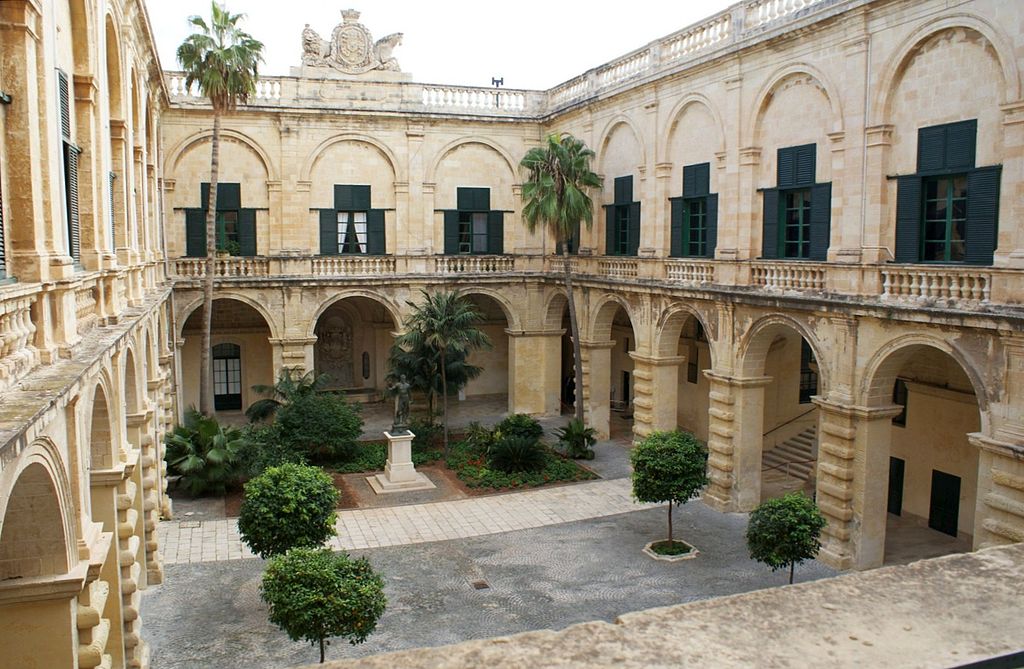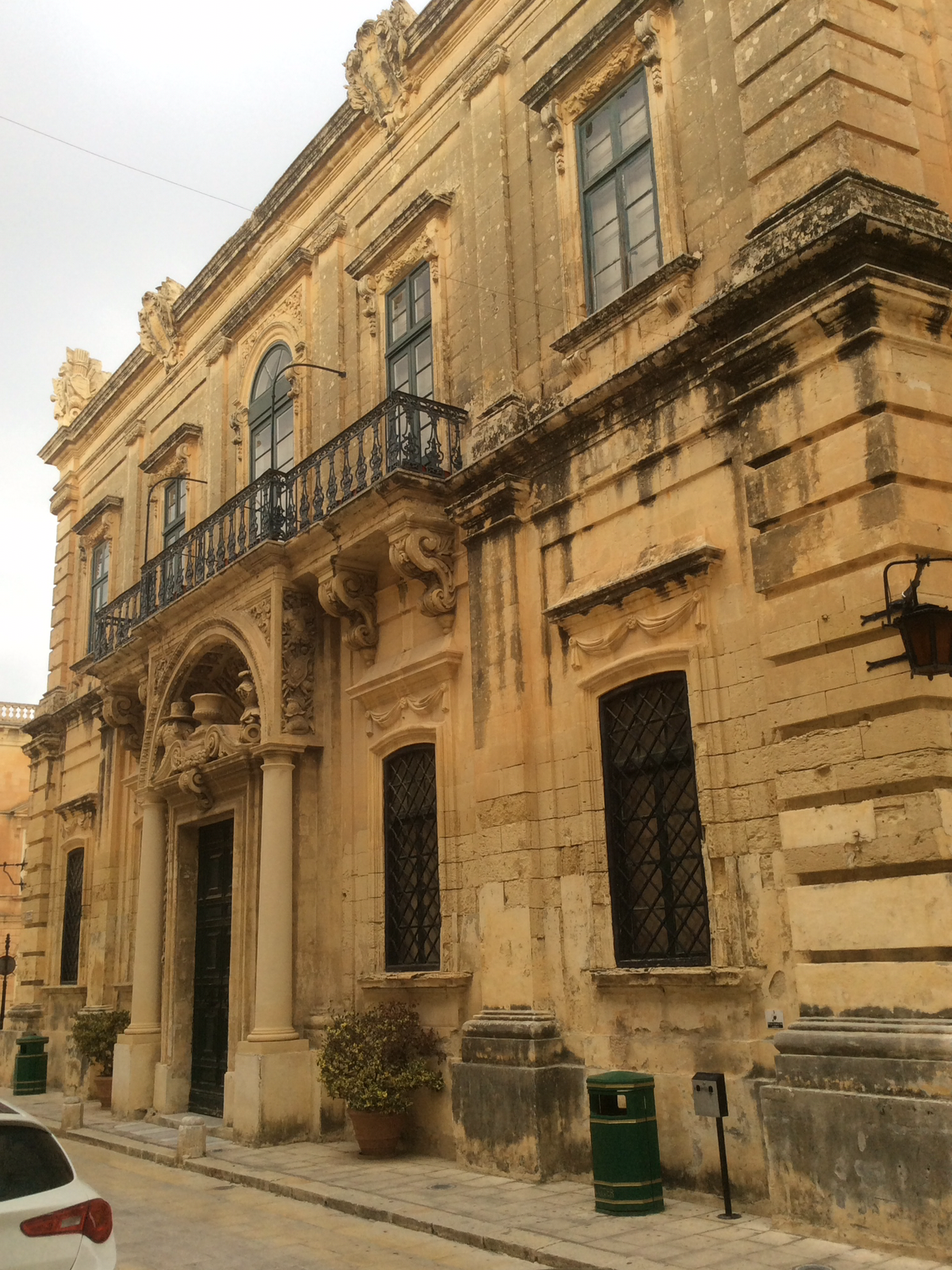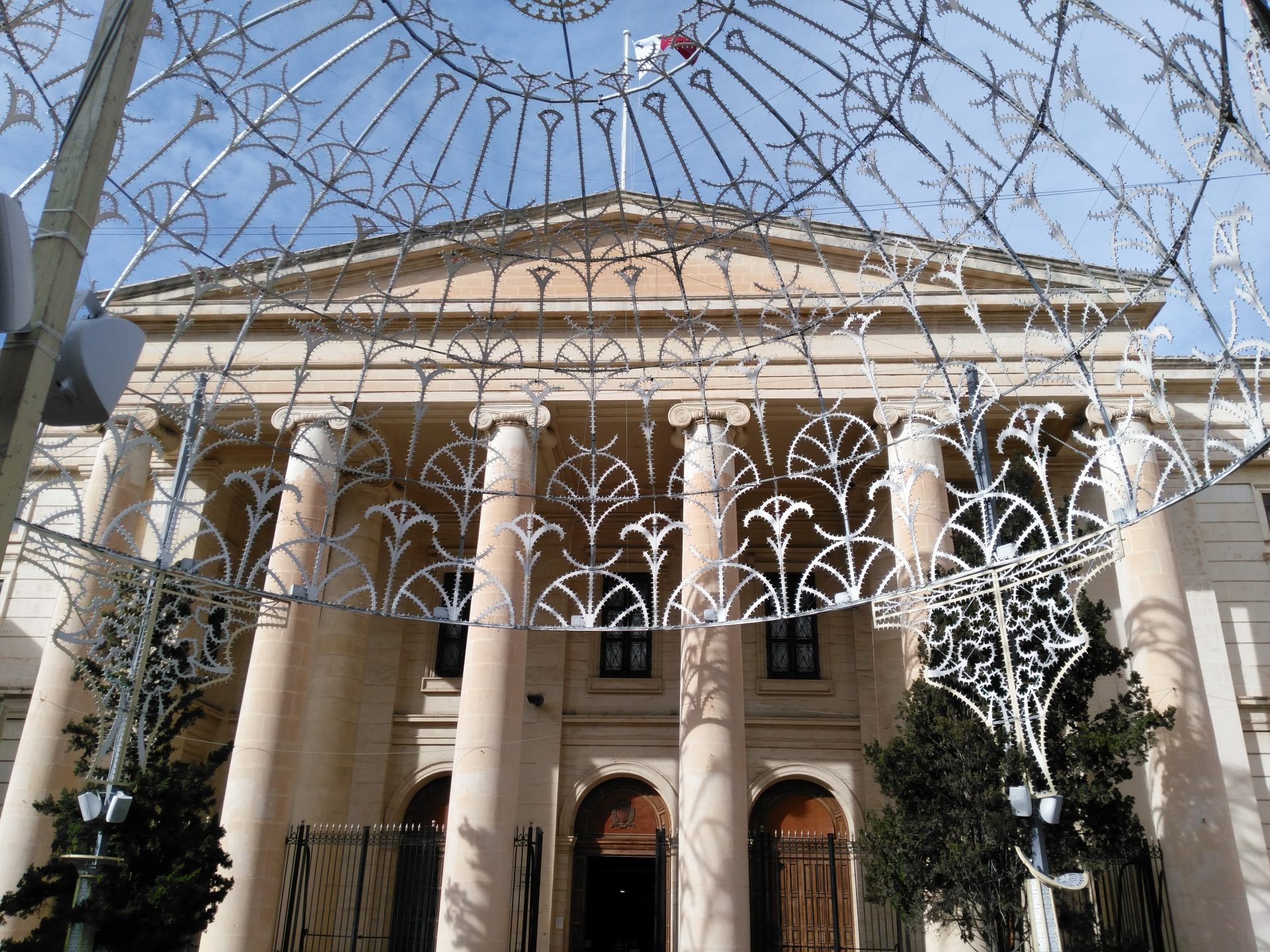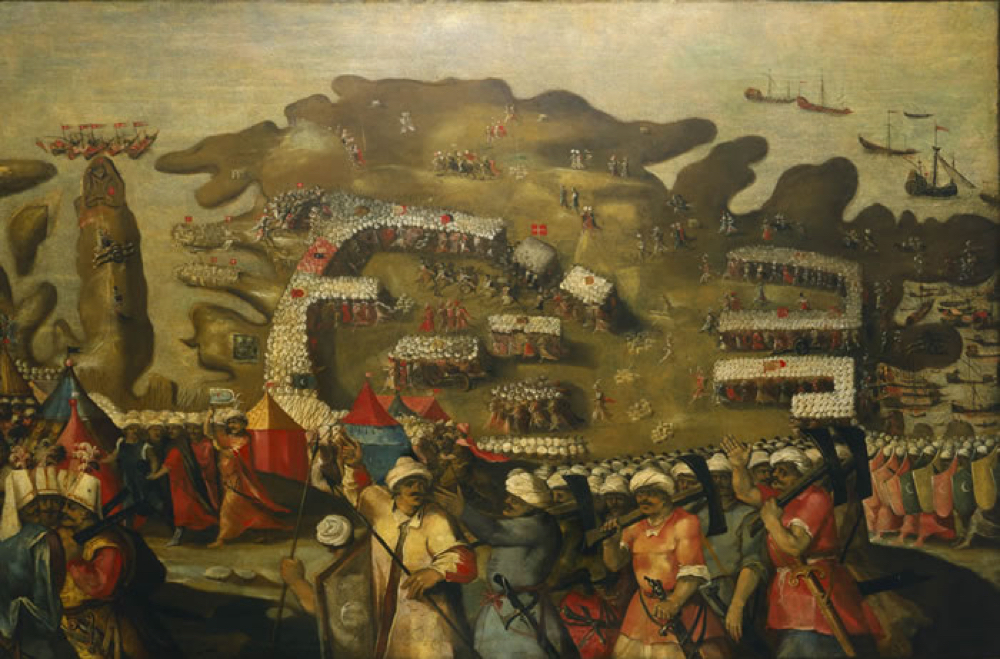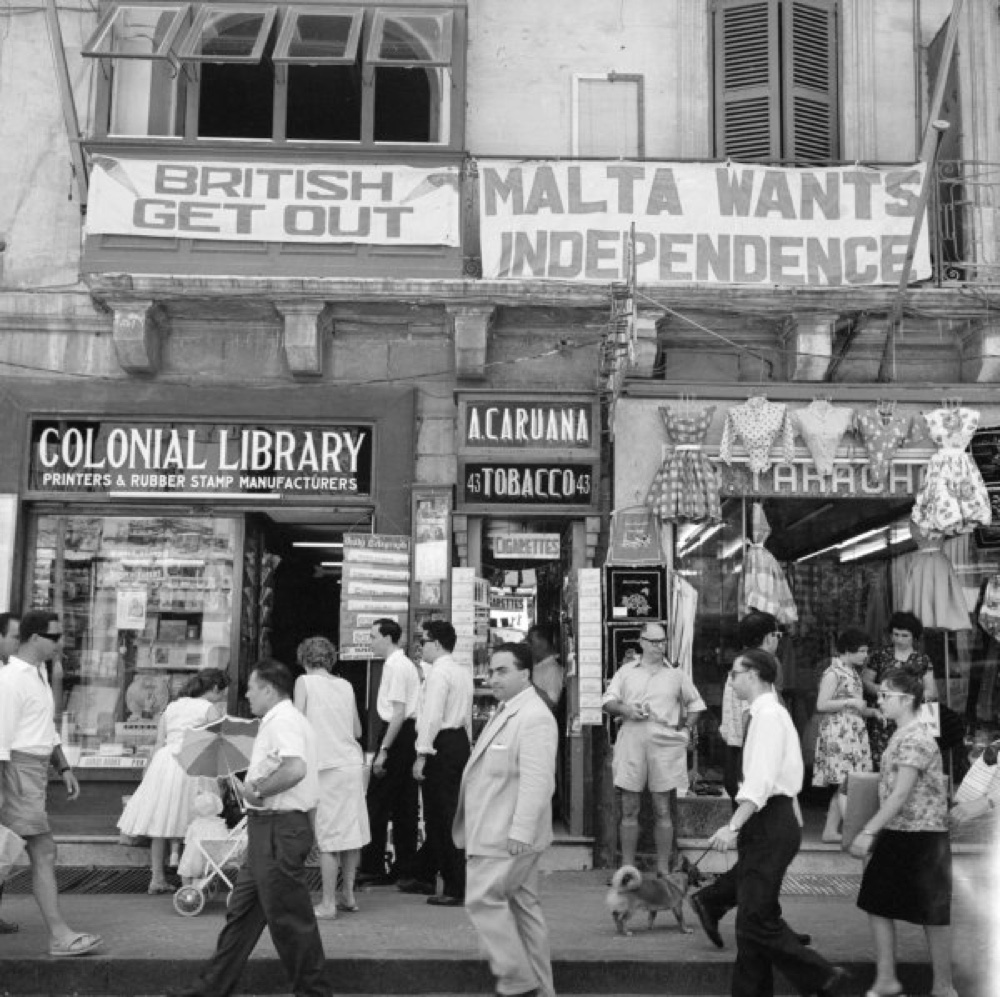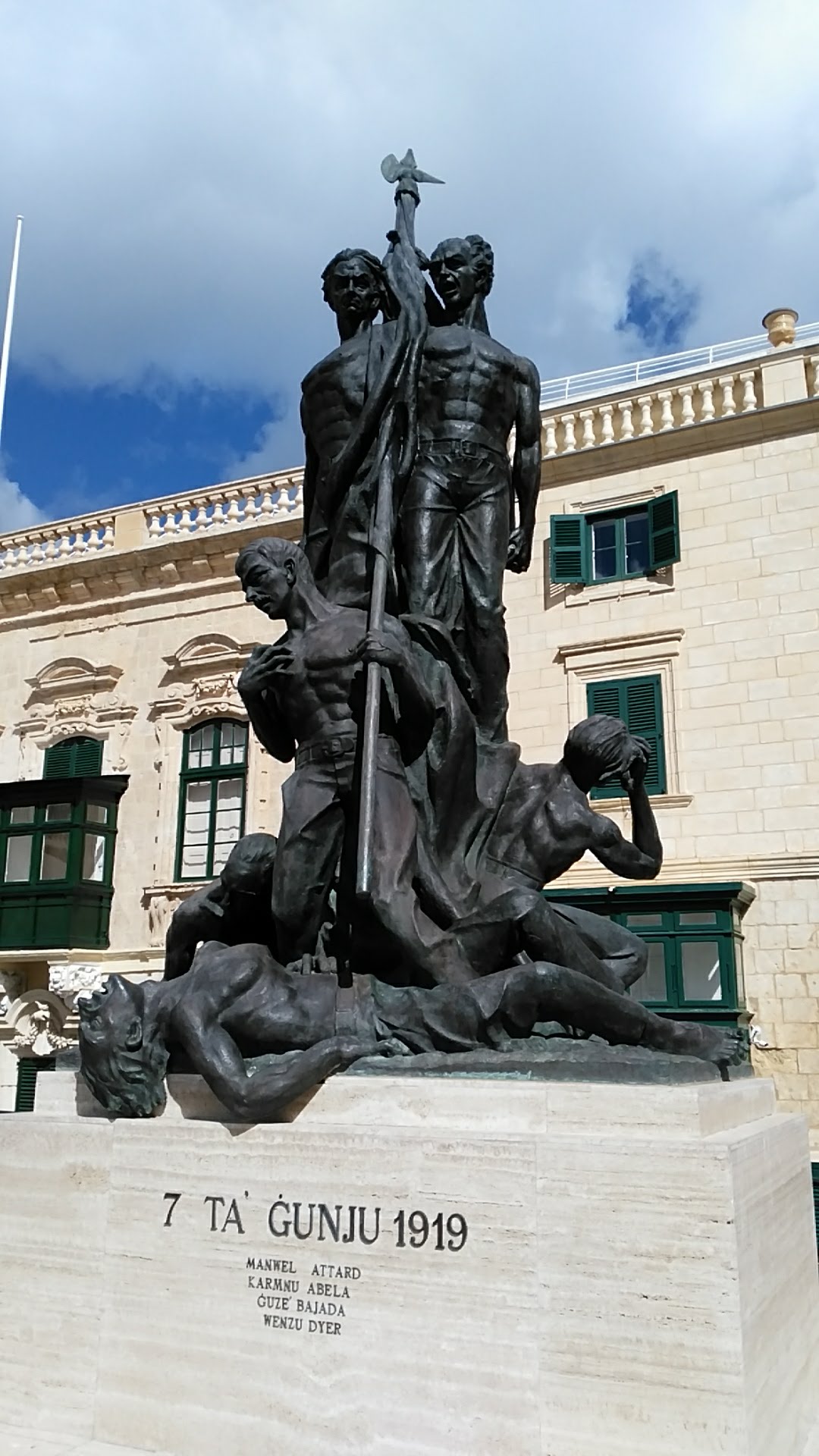The Life and Politics of Guido Demarco, By Pen Lister. Date. Categories: Maltese Democracy Tags: malta
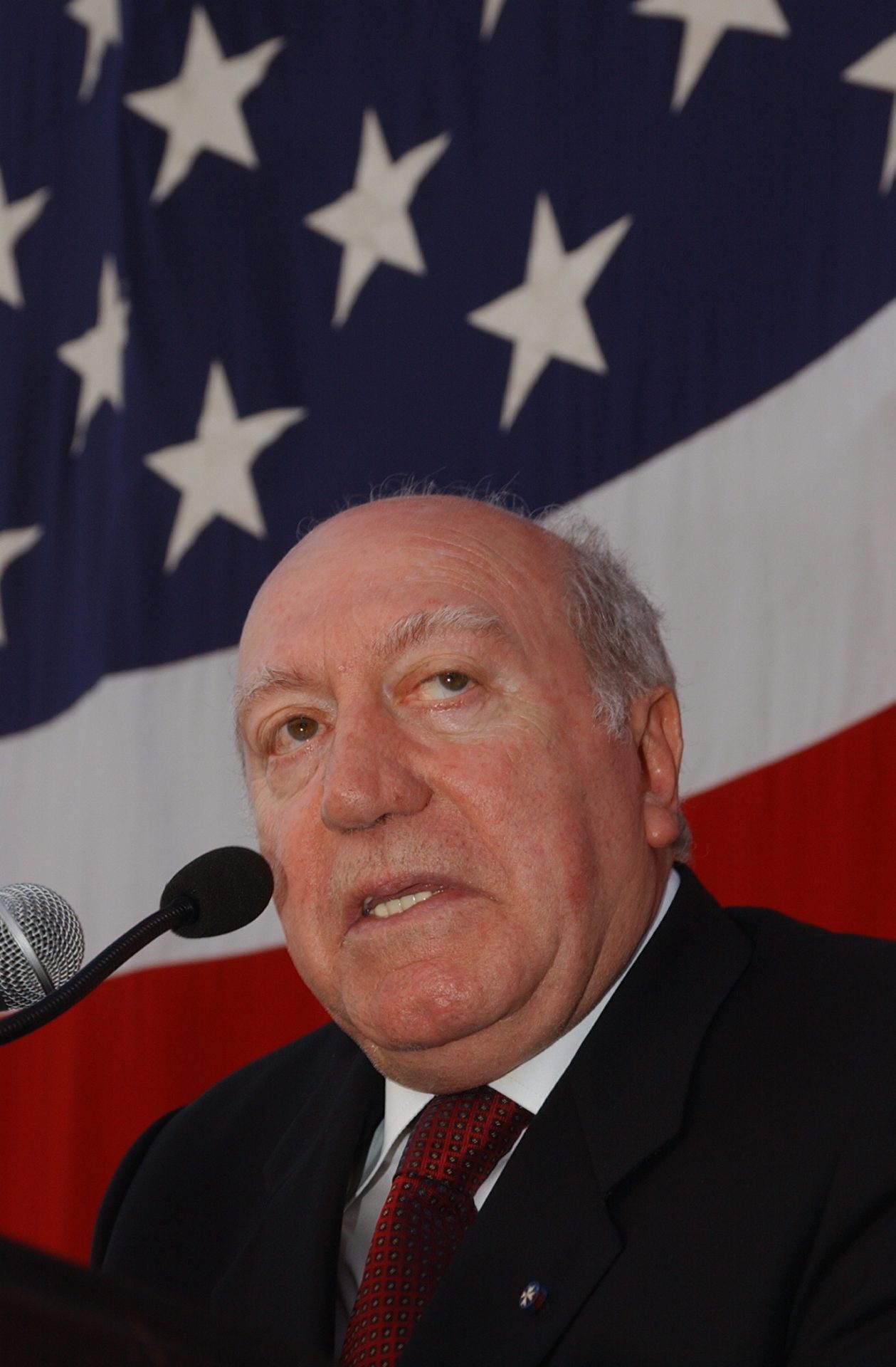
The Life of Guido Demarco
Photo: The President of Malta, Guido De Marco, addresses the crew aboard USS La Salle (AFS 3) during a reception ceremony on the ship’s flight deck. President Marco welcomed the captain and crew of the La Salle, and praised the ongoing warm relations between the U.S. Navy and the Maltese people. The ship is in Malta for a scheduled maintenance period.
22 July 1931 : Guido de Marco was born in Valletta to Emanuele and Giovanna (née Raniolo) de Marco.
He was educated at St. Joseph High School, St. Aloysius’ College and the University of Malta.
1952: Obtained a Bachelor of Arts degree in Philosophy, Economics and Italian.
1955: Graduated as a Doctor of Laws then specialising in criminal law becoming very successful in his practice providing skillful defense in major criminal cases. He became a lecturer, and later a professor of criminal law at the University of Malta.
De Marco married Violet Saliba, the couple had three children – Giannella, Fiorella and Mario. Prof. Guido de Marco was elected President of Malta on 4 th April 1999.
- April 1966 – was first elected in the interests of the Nationalist Party to the House of Representative. Has been returned to Parliament at every General Election.
- 1972 – Appointed Secretary General of the Nationalist Party.
- 1977 – Elected Deputy Leader and had since been uninterruptedly confirmed until his resignation in March 1999.
- 1987 – Appointed Deputy Prime Minister and Minister of the Interior and Justice after Nationalist Party was returned to office.
- Sept 8, 1998 – Appointed Deputy Prime Minister of Malta and Minister of Foreign Affairs following the Nationalist Party’s victory at the General Elections, a capacity which he held until his nomination to the Presidency of Malta.
- Sept 11, 1998 presented Malta’s request for the reactivation of its application for membership to the President of the European Union.
- On 4 April 1999 , de Marco was appointed President of Malta.
- 2004: Led his country into the European Union.
- 2004: Awarded an honorary doctor by St. Petersburg State University “for achievements in science and politics, in particular, for his efforts to integrate Malta into the EU.”
- 12 th August 2010: Professor de Marco passed away at the age of 79.
Sources
Featured image:https://commons.wikimedia.org/wiki/File%3AGuido_de_Marco_2003.jpg
The Political Activity of Guido de Marco
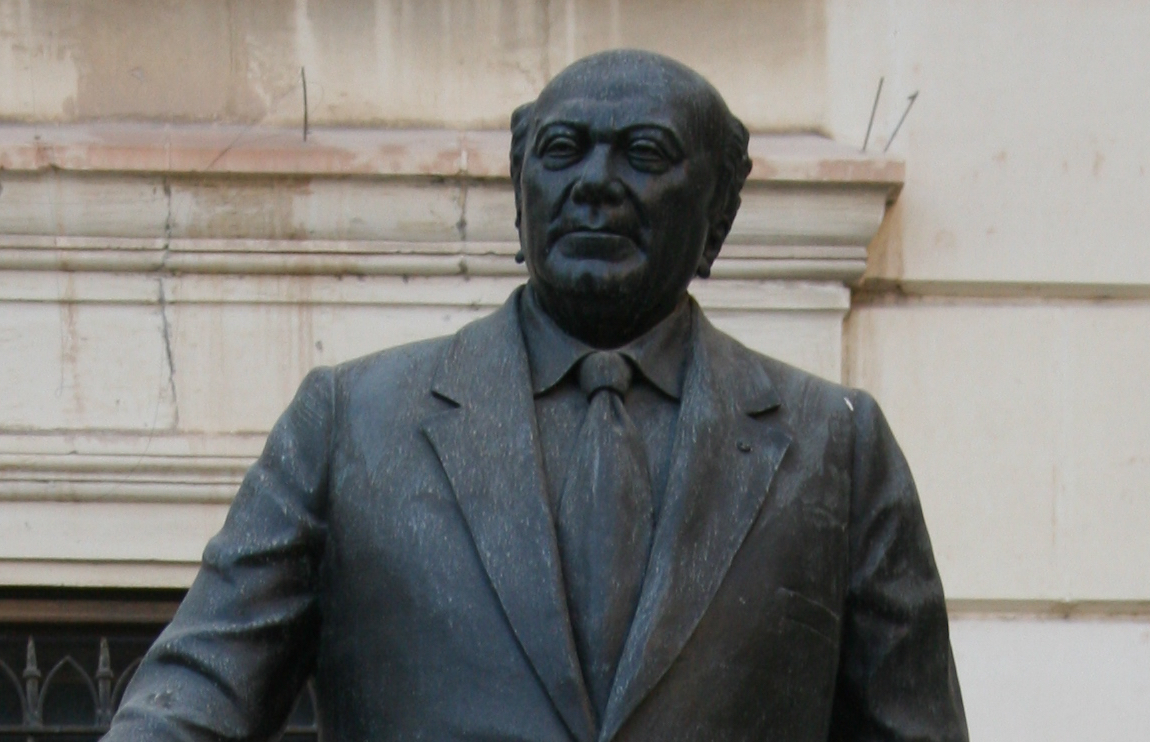
This section is about the political life of Guido De Marco, and lists his achievements and key events.
As Interior Minister and Justice
- Led the reform and modernization of the Police Force and founded the Police Academy.
- 1988 – attended Conference of European Law Ministers in Lisbon, and the Hague (1989).
- 1989 – Introduces Malta into the Pompidou Group (Co-operation group to Combat Drug Abuse and Illicit Trafficking in Drugs) and participated at its meeting of Ministers held in London. Led Malta’s delegation to the United Nations General Assembly Special Session on Drugs held in New York.
As Minister of Foreign Affairs (May 1990 – October 1996)
- One of his first acts was submitting Malta’s application for membership of the European Communities in Brussels on July 16 th, 1990, stressing Malta’s European vocation. .
- Underlined the validity of the Mediterranean dimension, promoting and pursuing the principle that the Euro-Mediterranean dialogue was a basic element to regional security and co-operation.
- Consolidated Malta’s active contribution to the work of international organisations – the United Nations, the OSCE, the Council of Europe and the Commonwealth.
- Introduced several bills in the House of Representatives that integrated important conventions, such as the European Convention on Human Rights into domestic law.
- 18 th September 1990 was elected President of the United Nations General Assembly (45 th Session). In this role he undertook a number of diplomatic initiatives:
- Visit to the refugee camps in the Occupied Territories and Jordan, to Ethiopia and Albania.
- Meeting with US Secretary of State, James Baker during the Gulf War
- Meeting with H.H. Pope John Paul II.
- Invited to Moscow for talks by the USSR Council of Ministers and to the People’s Republic of China.
- Visited the Democratic Republic of Korea and the Republic of Korea in May 1991 leading to the admission of these two countries to the United Nations.
- Visited Chernobyl, the Czech and Slovak Republic.
- Between 1990 and 1996 he spearheaded other key initiatives in both the bilateral and multilateral fields including:
- The expansion of Malta’s representation overseas
- The conclusion of important agreements in areas essential for economic growth and co-operation. He headed Malta’s delegation to the various CSCE/OSCE Conferences.
- In January 1992, at the CSCE Council in Prague, Malta launched Prof. De Marco’s initiative to declare the CSCE a regional arrangement in terms of Chapter VIII of the United Nations Charter, a proposal which was later approved by the Heads of State and Government at the Helsinki Summit.
- He promoted dialogue between the CSCE and the Mediterranean non-participating States.
- Gave particular attention to the Maltese Community overseas visiting Maltese migrants in Australia, Canada, the United States, the United Kingdom and smaller communities in a number of other countries.
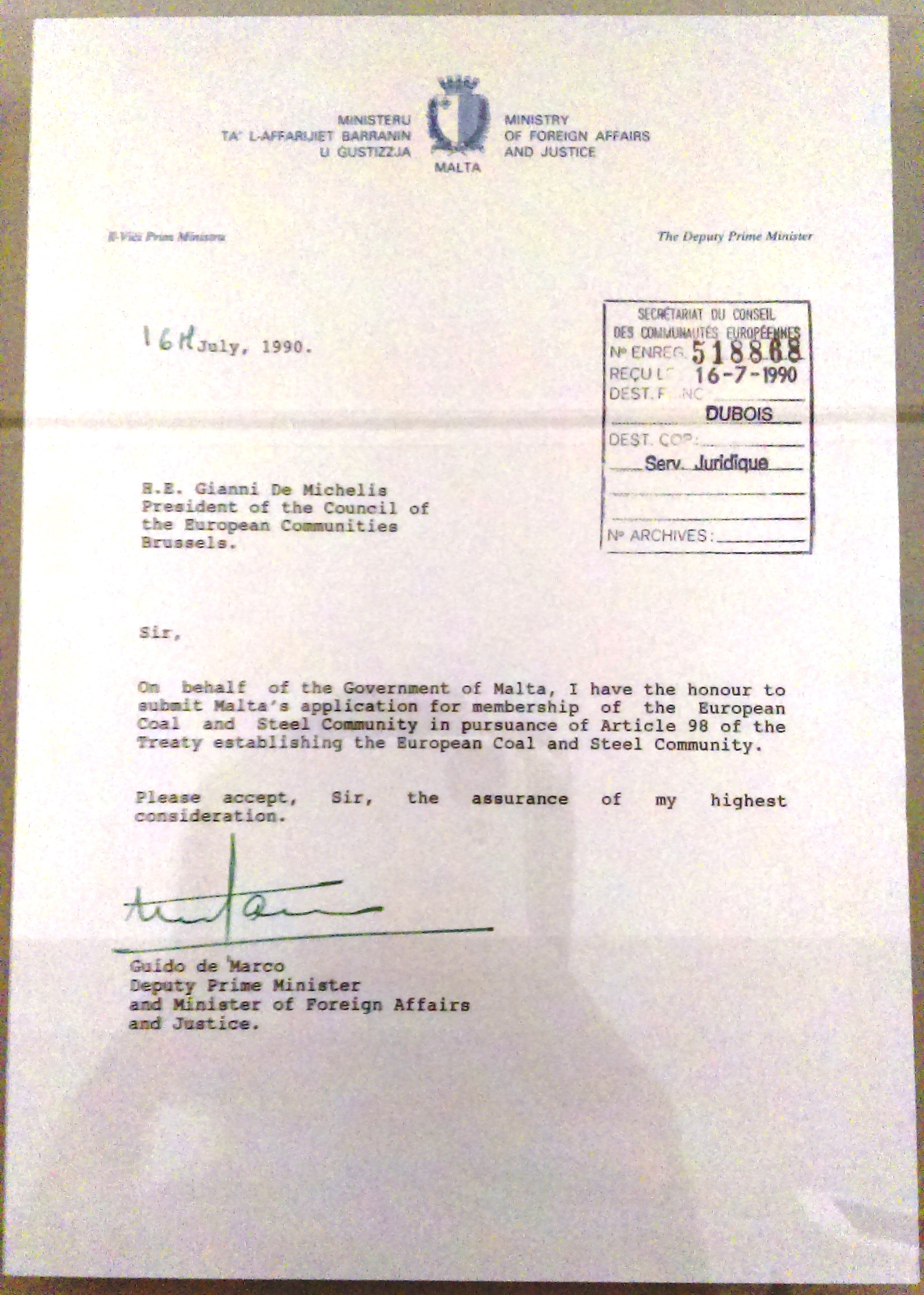
Letter of Application to the EEC. By Dans (Own work) [CC BY-SA 4.0 via Wikimedia Commons
Letter of application for membership of the European Economic Community by Malta, 1990. Sent from the Maltese foreign affairs minister Guido de Marco to the Italian foreign affairs ministers Gianni De Michelis, at the time holding the rotating presidency of the EU Council. Held at the House of European History in Brussels, Belgium. (Wikipedia)
Sources
Featured image: https://commons.wikimedia.org/wiki/File:Denkmal_an_Guido_de_Marco.JPG
